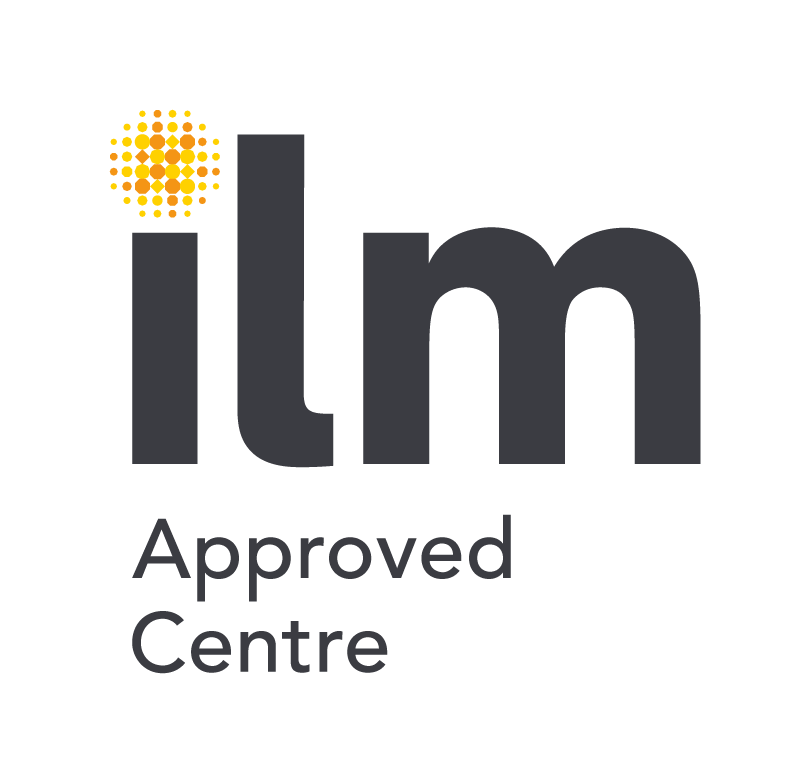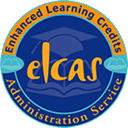Coaching & Mentoring Within Organisations ‑ ILM Level 5


Course Overview
This course leads to a qualification:
Level 5 in Effective Coaching & Mentoring

| Course Summary | |||
|---|---|---|---|
| Tutor-led Learning: | 5 days over 2 modules | Total CPD Earned: | 35 hours |
| CPD Accredited by: | ChTC CPD | ||
| Qualification Registration: | ILM level 5 | ||
| ILM Level 5 Qualification Support Summary | ||
|---|---|---|
| Supporting Features | Certificate | Diploma |
Advance Your Coaching & Mentoring Practice in Complex Environments
This programme is designed for individuals working within organisational contexts who are currently coaching or mentoring, or looking to step into these roles more formally.
It’s especially valuable for HR and OD professionals, those managing internal coaching or mentoring schemes, and anyone coaching managers or navigating complex organisational systems.
Programme Overview
Delivered over five days in a modular format, this in-depth programme builds both core capability and advanced insight:
- Module 1 (3 days): Develop the confidence, skills, and structure to operate as an effective coach or mentor.
- Module 2 (2 days): Explore coaching in organisational complexity, enhancing your awareness, strategic perspective and adaptive skillset.
Why modular?
To explore the rationale for the ChTC Modular Training Approach - see the below About the programme section - MODULAR FORMAT tab.
Expert-Led Learning
At ChTC, our programmes are grounded in best practice, current research, and real-world application. Our tutors are not only seasoned practitioners, they are active contributors to the field of coaching and mentoring through research, consultancy, and thought leadership.
You’ll be learning from experts who bring both depth and relevance to every session.
After the learning modules, all participants apply their knowledge in practice with real clients, reflect on their experiences, and shape their onward professional development journey.
Accreditation
✔ ILM Level 5 Accreditation in Effective Coaching and Mentoring
✔ CPD Accredited by the Association for Coaching
To achieve certification, participants must:
- Attend all five learning days
- Complete the required coaching or mentoring hours
- Participate in tutorials and coach supervision sessions
Which option is right for me?
One credit typically equates to 10-hours of learning at your chosen qualification level.
A Certificate refers to a qualification size of between 13 and 36 credits and which would take a minimum of 130 hours to complete.
A Diploma is the largest qualification starting at 37 credits and requiring a minimum of 370 hours of study commitment.
Details of the specific unit requirements for each option, may be found under the ASSESSMENT tab below.
Next Available Course
-
Duration: 3 Days
12 May 2025
14 May 2025
-
Duration: 2 Days
16 June 2025
17 June 2025
-
In PersonVirtualBlended
| Pricing & Qualification Options | ||
|---|---|---|
| ILM Level 5 in | ||
| Effective Coaching & Mentoring | ||
| Option | In Person | Virtual |
| Certificate | 1795 | 1620 | Diploma | 1950 | 1775 |
| Prices exclusive of VAT | ||
About the programme
-
Benefits for individual
- Be able to assess your own knowledge, skill and behaviours as a coach
- Understand the role and responsibilities of effective, ethical coaches and mentors
- Know how to manage coaching and mentoring processes within an organisational context
- Deepen your awareness of how the organisational context affects coaching and mentoring relationships
- Practice your coaching and mentoring skills through participation in observed coaching or mentoring sessions
- Analyse your coaching or mentoring performance in order to improve own ability
- Develop your reflective practice as a coach or mentor
Benefits for employers
- Ensure the individuals developed as coaches and mentors are equipped with the skills, knowledge and understanding they require to operate as safe, effective and ethical practitioners
- Develop a coaching and mentoring culture in your organisation so individuals can thrive and help deliver organisational performance and outcomes
-
Daily Programme Structure
Time Event 09:00 Registration 09:30 Session A 11:00 Morning Break 11:15 Session B 12:45 Lunch Break 13:15 Session C 14:45 Afternoon Break 15:00 Session D 16:30 Day End Important information:
- The Daily Programme Structure table, provides a useful overview of approximate timings for each day.
- On the first day of a course registration takes place from 09:00 on subsequent days (if applicable), please arrive or sign in remotely by no later than 09:20
- The programme commences at 09:30 daily,
- Each Guided Learning session is approximately 90 minutes in duration (precise timing will be content specific).
- Breaks are facilitated between sessions, however you are free to stretch your legs or grab some refreshements at any time.
- Lunch is taken at approximately 12:45 for 30 Minutes.
- We aim to finish activities at approximately 16:30 daily.
Greater detail regarding the each days planned topics, are shown in the Day Planner below.
-
Day Planner - Level 5 Programme
-
Pre-course Activity
- Pre-course workbook
- Rationale for attendance
- Coaching opportunities
- Wheel of Life
- Global Code of Ethics
- Coach / Mentor Competencies
- Pre-course workbook
-
Day One - Firm Foundations
- Welcome & introductions
- Effective contracting in coaching and mentoring
- Group contracting exercise
- Developing core skills
- Rapport factors
- Building trust
- Listening with curiosity
- The coaching and mentoring continuum
- Rogerian principles – unconditional positive regard
- Tutor led coaching demonstration with group observation and feedback
- Introduction to GROW coaching / mentoring model
- GROW based coaching practice
-
Day Two - Developing Practice
- Developing ourselves as reflective practitioners
- Reflective practice tools
- Practical reflection session exploring day 1 coaching
- Starting to understand our clients
- Adult learning theory
- OARS Framework
- Johari Window
- Logical levels
- Kubler-ross change curve
- Intrinsic motivation
- Developing powerful questions
- Transactional and transformational questions
- Group exercise to develop questions
- Questioning practice session & feedback
- Introduction to Wheel of Life
- Observed wheel of life coaching practice
- Reflections and journalling
- Developing ourselves as reflective practitioners
-
Day Three - Building Our Professional Practice
- The knowledge, skills and capabilities of professional coaches and mentors
- Group exercise
- Professional practice fundamentals
- Boundaries in coaching and mentoring practice
- The role of supervision in coaching and mentoring
- How we ‘show up’ – considering coaching presence
- Ethical practice
- Developing goals and objectives with clients
- Individual and organisational considerations
- Using ‘well-formed outcomes’ to set meaningful goals
- Well-formed outcomes practice session & feedback
- The use of metaphor in coaching practice
- Metaphor based coaching practice with observation and feedback
- Reflections and journalling
Inter-module Homework
Developing your ‘elevator pitch’
Complete VIA strengths inventory
Conduct at least one 45-minute coaching / mentoring session
- The knowledge, skills and capabilities of professional coaches and mentors
-
Day Four - Module 2
- Coaching supervision
- Supervision models
- Supervision of inter-module practice
- Coaching in organisations
- The business case for coaching
- Group exercise – developing your elevator pitch
- Setting up and managing internal schemes
- Three and four cornered contracting
- Contracting exercise
- Developing a coaching culture
- Case study exercise
- Coaching Leaders and Managers in Organisations
- Leadership behaviours
- Emotional Intelligence
- Strengths inventory results
- Strengths & over-strengths
- Strengths based coaching practice with observation and feedback
- Reflections and journalling
- Coaching supervision
-
Day Five - Module 2
- Coaching for Professional Development
- Introducing career timeline coaching
- Demonstration of timeline coaching
- Timeline coaching exercise with observation and feedback
- Creativity in Coaching
- Explore a range of creative tools for coaching practice
- Practical application exercise
- Coaching in the Organisational System
- Exploring system level coaching
- Mapping exercise of own organisational systems
- Discussion as to how these impact coaching / mentoring practice
- Working with Self-Limiting Belief
- Imposter phenomenon
- Cognitive behavioural coaching
- CBC practice session with observation and feedback
- Reflections and journalling
- Coaching for Professional Development
-
Pre-course Activity
-
The CHTC ‘Coaching & Mentoring in Organisations’ programme leads to an ILM Level 5 Qualification in Effective Coaching and Mentoring, awarded by the Institute of Leadership & Management (ILM).
Once you’ve completed both modules, you’ll be registered with the ILM and can begin working towards your qualification.
Depending on your career objectives and time commitment, you can choose from either:
- Certificate: A solid grounding in coaching and mentoring, focusing on core skills, models, and practical application within the workplace.
- Diploma: A deeper, more extensive qualification that builds on the Certificate, including a substantial amount of practical coaching, reflective practice, and strategies for embedding coaching into organisational culture.
Here’s what’s involved:
1. Written Assignment
You’ll complete a written assignment exploring the core principles, skills and practices of effective coaching and mentoring within the workplace. It helps particppants understand how coaching and mentoring support individual and organisational development, while also examining key models, ethical considerations, and the role of the coach or mentor in a professional setting.
2. Practical Experience
Based on the specific requirements your chosen qualification (Certificate or Diploma - details may be found below) you’ll undertake a number of coaching sessions with a number of clients.
3. Reflective Journal and CPD Plan
To complete your qualification, you’ll submit a reflective journal and a Continuing Professional Development (CPD) plan, capturing your learning and growth as a coach.
4. Supervision and Support
Once your practice begins, you’ll take part in Group tutorials and Supervision to support your development.
Understanding Assessment Criteria (ACs)
Each assessed piece of work, including written assignments, is structured around Assessment Criteria (ACs). These criteria break down the required knowledge, understanding, and evidence needed to meet the qualification standards. Full guidance on how to meet each AC is provided both within the course content and on the Learning Management System (LMS), helping you understand what’s expected and how to structure your responses effectively.
Explore the assesment units by qualfication size
-
Whether you attend in person or join virtually, you are part of a fully live and interactive experience, where your presence and participation are essential.
This programme is accessible in the following modes:
In-person
Our in-person courses are designed to provide an immersive learning experience that fosters direct interaction with instructors and peers. You'll benefit from a dynamic classroom environment where ideas are exchanged freely, hands-on activities reinforce your learning, and real-time feedback enhances your understanding. The personal connections you build in our face-to-face sessions create a supportive community that extends beyond the classroom, offering valuable networking opportunities and collaborative projects. With access to our cutting-edge facilities and resources, attending in person allows you to fully engage with the course material and participate in spontaneous discussions that can enrich your educational journey.
Virtual Classroom
Our virtual classroom brings the quality and engagement of in-person learning to you, wherever you are. Leveraging the latest in online education technology, our virtual courses are designed to be interactive and engaging, with live lectures, real-time discussions, and collaborative activities that mirror the in-person experience. You'll have the flexibility to join from the comfort of your home or office. Our virtual platform ensures that distance is no barrier to accessing high-quality education, with all the tools you need to succeed, including digital resources, virtual breakout rooms for group work, and direct communication with instructors and fellow participants.
Hybrid
Some of our programs offer the same live training to both in-person and virtual participants, ensuring a cohesive and integrated learning experience for all. As we develop our skills in various co-coaching sessions, in-person attendees will have the unique opportunity to coach both online and face-to-face, bridging the gap between traditional and digital environments. This dual-mode coaching experience is invaluable in today's world, where the ability to navigate and excel in both physical and virtual spaces is increasingly essential. By mastering the art of hybrid coaching, you’ll gain practical skills that are not only relevant but critical for thriving in a rapidly evolving professional landscape.
Blended
This flexible learning model allows you to tailor your educational experience to seamlessly fit your lifestyle, offering the best of both in-person and remote participation. With the blended approach, you have the freedom to attend sessions on campus when you can, enjoying face-to-face interactions and hands-on experiences, while also having the option to join remotely whenever needed. This adaptability ensures that your learning remains consistent and uninterrupted, regardless of your location or schedule. Whether you’re balancing work, travel, or other commitments, the blended model empowers you to stay engaged and fully participate in your education on your terms.
-
ChTC CPD

ChTC CPD is the trust mark we add to our training to demonstrate the high value of a learning experience for our participants.
CPD is the ongoing process through which professionals maintain and enhance their knowledge, skills, and competencies throughout their careers. Whilst CPD is mandatory only in some industries such as finance, healthcare, law and others, continuous learning on and for work is part of the natural competence development process for all individuals engaged in any professional activity.
It is not about the validity of our professional knowledge; instead, it focuses on our ability to deliver training that enables our participants to achieve their professional goals, but these rely on them being added .
-
The Office of Qualifications and Examinations Regulation

The Office of Qualifications and Examinations Regulation (Ofqual) regulates qualifications, examinations and assessments in England.
For your convenience, we provide the related OFQUAL Qualification numbers and links to the gov.uk website where this data is maintained. From that page, the awarding organisation may be confirmed and access to the relevent specification is also provided.
Upcoming Course Dates
Spring Course
-
Duration: 3 Days
12 May 2025
14 May 2025
-
Duration: 2 Days
16 June 2025
17 June 2025
-
In PersonVirtualBlended
Late Summer Course
-
Duration: 3 Days
8 September 2025
10 September 2025
-
Duration: 2 Days
13 October 2025
14 October 2025
-
In PersonVirtualBlended
Late Autumn Course
-
Duration: 2 Days
1 December 2025
2 December 2025
-
Duration: 2 Days
12 January 2026
13 January 2026
-
In PersonVirtualBlended